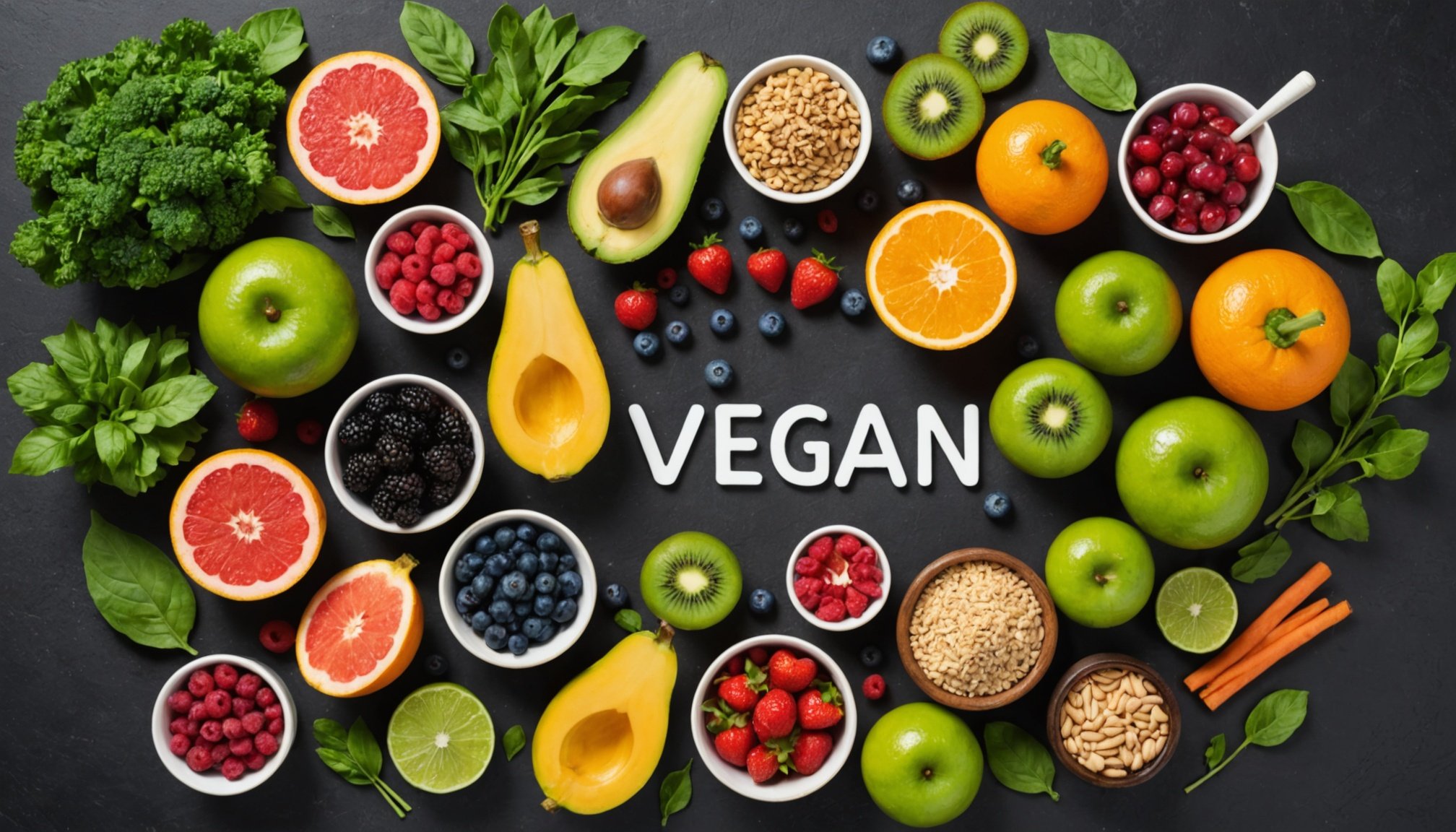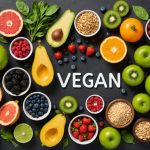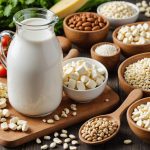Essential Nutrients for Vegan Energy
A successful vegan diet is rich in essential nutrients, crucial to maintain energy levels and overall health. The key to sustaining energy is a balance of both macronutrients and micronutrients. Macronutrients such as proteins, fats, and carbohydrates form the energy foundation. They are necessary in larger quantities for their roles in energy production, tissue repair, and cellular health.
Macronutrients: Proteins, Fats, and Carbohydrates
Proper protein intake is vital for muscle maintenance, immune function, and energy sustainment. Plant-based proteins like lentils and nuts offer abundant amino acids essential for bodily functions. Fats, a concentrated energy source, are vital for brain health and hormone production. Avocados and olive oil provide healthy fats without animal products. Carbohydrates sourced from whole grains are crucial for energy storage and release.
Topic to read : Essential non-dairy calcium rich foods for enhancing bone health in menopausal women
Micronutrients
Micronutrients, including iron, calcium, and vitamin B12, combat tiredness and elevate performance levels. Iron, best absorbed with vitamin C, prevents fatigue, while calcium supports muscular function. Vitamin B12, often lacking in plant diets, is significant for energy synthesis. Fortified foods and supplements are pragmatic sources for vegans to acquire these nutrients, preserving their vitality and boosting energy reserves.
Top Plant-Based Protein Sources
Maintaining adequate protein intake is crucial for those following a vegan diet. Various plant-based sources offer excellent options for meeting daily protein needs, crucial for bodily functions and overall health.
Also to discover : Achieve a perfect makeup look with just five must-have products!
Legumes and Beans
Legumes such as lentils, soybeans, and chickpeas are powerhouse proteins that support energy recovery. They’re not only rich in protein but also in dietary fibre, which aids digestion and keeps you satiated longer. Lentils and black beans are particularly effective for boosting protein content in meals, helping meet nutrient requirements efficiently.
Nuts and Seeds
Nuts and seeds are remarkable for their protein-dense profiles. Almonds, hemp seeds, and pumpkin seeds provide a convenient protein boost, while also offering healthy fats and vital micronutrients. These options are perfect for quick snacks or to add texture and protein to meals.
Whole Grains
Whole grains like quinoa and brown rice are not just sources of carbohydrates but also contain valuable proteins. Quinoa is a complete protein, meaning it offers all essential amino acids needed by the body. Integrating these into your diet helps enhance metabolism and sustains energy levels effectively.
Iron Sources and Absorption
For vegans, iron is crucial for maintaining energy levels and enhancing athletic performance. Plant-based diets require vigilance in ensuring adequate iron intake, as this mineral is essential for transporting oxygen throughout the body. The best plant sources of iron include lentils, tofu, and leafy greens, such as spinach and kale. These foods are rich in non-heme iron, which, although less easily absorbed than the heme iron found in animal products, can still effectively support protein intake and bodily functions.
To maximise iron absorption from these sources, it is essential to combine them with foods high in vitamin C, like oranges, strawberries, or bell peppers. This nutrient significantly boosts the body’s ability to utilise non-heme iron, preventing tiredness and fatigue. Additionally, reducing the intake of coffee and tea during meals can enhance absorption, as the tannins found in these beverages may inhibit iron uptake.
Vigilantly incorporating iron-rich foods and enhancing absorption techniques ensures that vegans get the most from their diet. Adequate iron intake supports energy levels, benefiting not only daily activities but also physical performance, essential for a healthy, active lifestyle.
Vitamin B12 and Its Role
In a vegan diet, ensuring adequate Vitamin B12 intake is crucial. This vitamin is essential not only for energy support but also for maintaining nerve health. Unfortunately, natural sources of Vitamin B12 are predominantly animal-based, which presents a challenge for vegans. Consequently, fortifying foods and taking supplements become necessary steps to maintain sufficient levels.
B12 fortified foods, such as plant milks, breakfast cereals, and nutritional yeast, offer convenient options for vegans. These fortified products provide a reliable source of Vitamin B12, contributing to overall health and vitality. Supplements, often available as tablets or drops, serve as another practical solution to circumvent deficiency.
Symptoms of a B12 deficiency can be quite debilitating, ranging from fatigue and weakness to nerve damage and mood changes. Therefore, recognising these signs is vital. Regularly monitoring Vitamin B12 levels through healthcare check-ups is advisable to prevent complications and optimise health.
Proactively incorporating Vitamin B12 into a vegan diet ensures energy levels remain stable, fostering an active and healthy lifestyle. Addressing this potential deficiency with fortified foods and supplements safeguards not only energy but also supports nerve function effectively.
Omega-3 Fatty Acids for Recovery
Achieving optimal recovery in a vegan diet relies on incorporating omega-3 fatty acids, crucial for reducing inflammation and supporting muscle repair. Vegan sources, such as algal oil, provide a direct and potent source of omega-3, ideal for those pursuing active lifestyles. Algal oil supplements are convenient and eco-friendly, delivering the essential EPA and DHA fatty acids commonly found in fish.
Algal Oil and Supplements
Algal oil, derived from algae, presents a premier supplement choice for vegans. Unlike fish oil, it bypasses bioaccumulation risks, eliminating contaminants. Easily incorporated into daily routines, these supplements ensure a steady intake without relying on animal products.
Chia and Flaxseeds
Rich in omega-3s, chia and flaxseeds are versatile additions for an energy-boosting diet. Their high alpha-linolenic acid (ALA) content supports cardiovascular health, making them essential components of plant-based nutrition. Sprinkle them onto meals or incorporate into smoothies for a nutrient-rich enhancement.
Importance for Inflammation Reduction
Balancing omega-6 to omega-3 ratios is vital; excessive omega-6 may heighten inflammation. A mindful approach to dietary balance aids in maintaining optimal health. These fats not only contribute to muscle recovery but also promote heart and joint health, pivotal for sustained performance.
Meal Planning for an Active Vegan Lifestyle
Constructing a dynamic vegan meal plan is crucial for maintaining energy levels and promoting overall vitality. The key lies in achieving a well-rounded balance of essential nutrients that supports an active lifestyle. To sustain energy, incorporate a variety of major food groups systematically.
Crafting Satisfying Meal Plans
Begin by integrating protein-rich sources like legumes and quinoa, ensuring your body receives the necessary building blocks for recovery and energy production. Healthy fats from avocados and nuts are also essential, providing a prolonged energy source and supporting brain function.
Essential Nutrient Balance
Vegan meal planning must also focus on micronutrients, often overlooked but vital for energy synthesis. Foods fortified with vitamin B12 and iron-rich options like spinach can help maintain optimal energy levels and prevent deficiencies.
Sample Meal Ideas
For breakfast, consider a smoothie with flaxseeds for omega-3s, paired with fortified cereal. For lunch, a lentil salad with a side of whole-grain bread provides sustained fuel. Dinner can feature tofu stir-fry combined with brown rice, delivering balanced nutrition. These meal ideas are designed to boost energy and accommodate an active lifestyle effectively.
Addressing Common Nutrient Deficiencies
Adopting a vegan diet can bring about potential nutritional gaps, demanding awareness and proactive strategies to ensure optimal health. Nutrient deficiencies commonly faced by vegans include vitamin B12, iron, omega-3 fatty acids, calcium, and protein. Recognising these gaps allows for the implementation of dietary solutions tailored to effectively maintain nutritional balance.
Understanding the dynamics of nutrient absorption is pivotal. For instance, iron from plant-based sources can be more effectively absorbed when combined with vitamin C-rich foods. This combination mitigates the challenges posed by non-heme iron’s relatively lower absorption rate. For calcium, fortified plant milks and juices serve as reliable vegan sources.
To sustain energy and well-being, regular health check-ups and blood tests are indispensable. These evaluations track nutrient levels, identifying any deficiencies that might arise over time. Addressing these proactively, through either fortified foods or supplements, equips individuals with a robust defence against the risks of deficiency.
Adopting an informed dietary strategy is key to overcoming these challenges. By embracing balanced nutrition solutions, vegans can confidently support their health and energy needs, ensuring a thriving lifestyle.











